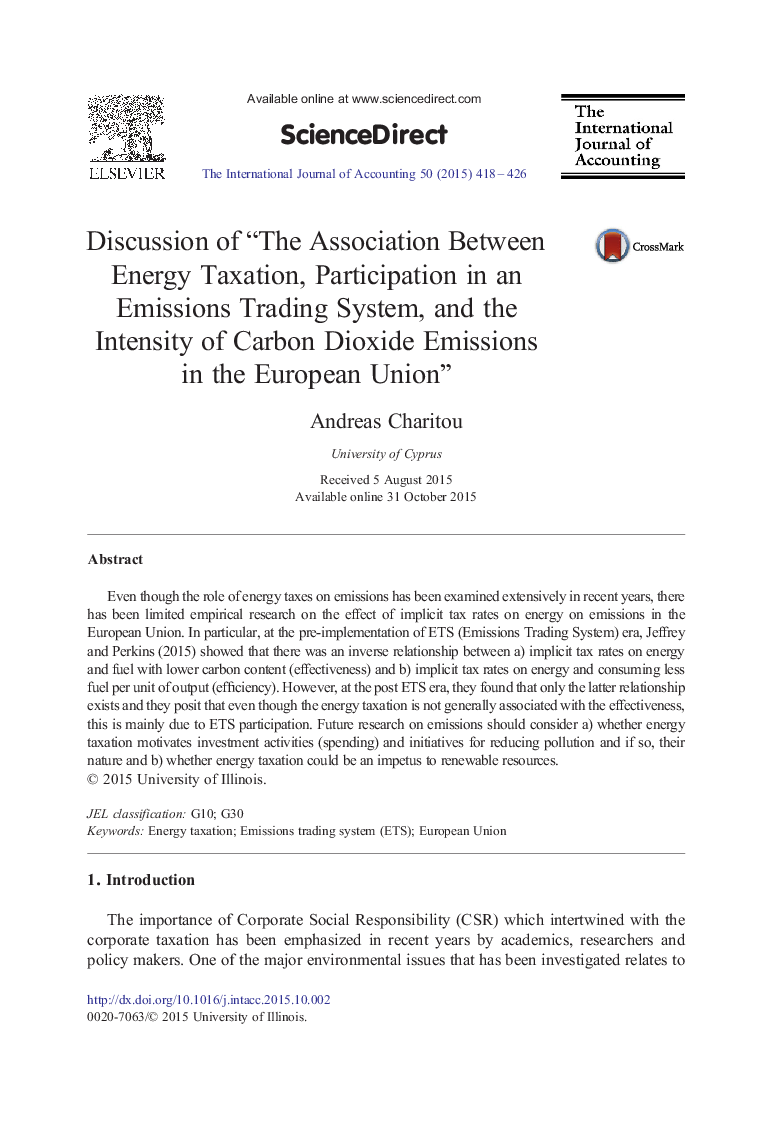| Article ID | Journal | Published Year | Pages | File Type |
|---|---|---|---|---|
| 1004843 | The International Journal of Accounting | 2015 | 9 Pages |
Even though the role of energy taxes on emissions has been examined extensively in recent years, there has been limited empirical research on the effect of implicit tax rates on energy on emissions in the European Union. In particular, at the pre-implementation of ETS (Emissions Trading System) era, Jeffrey and Perkins (2015) showed that there was an inverse relationship between a) implicit tax rates on energy and fuel with lower carbon content (effectiveness) and b) implicit tax rates on energy and consuming less fuel per unit of output (efficiency). However, at the post ETS era, they found that only the latter relationship exists and they posit that even though the energy taxation is not generally associated with the effectiveness, this is mainly due to ETS participation. Future research on emissions should consider a) whether energy taxation motivates investment activities (spending) and initiatives for reducing pollution and if so, their nature and b) whether energy taxation could be an impetus to renewable resources.
